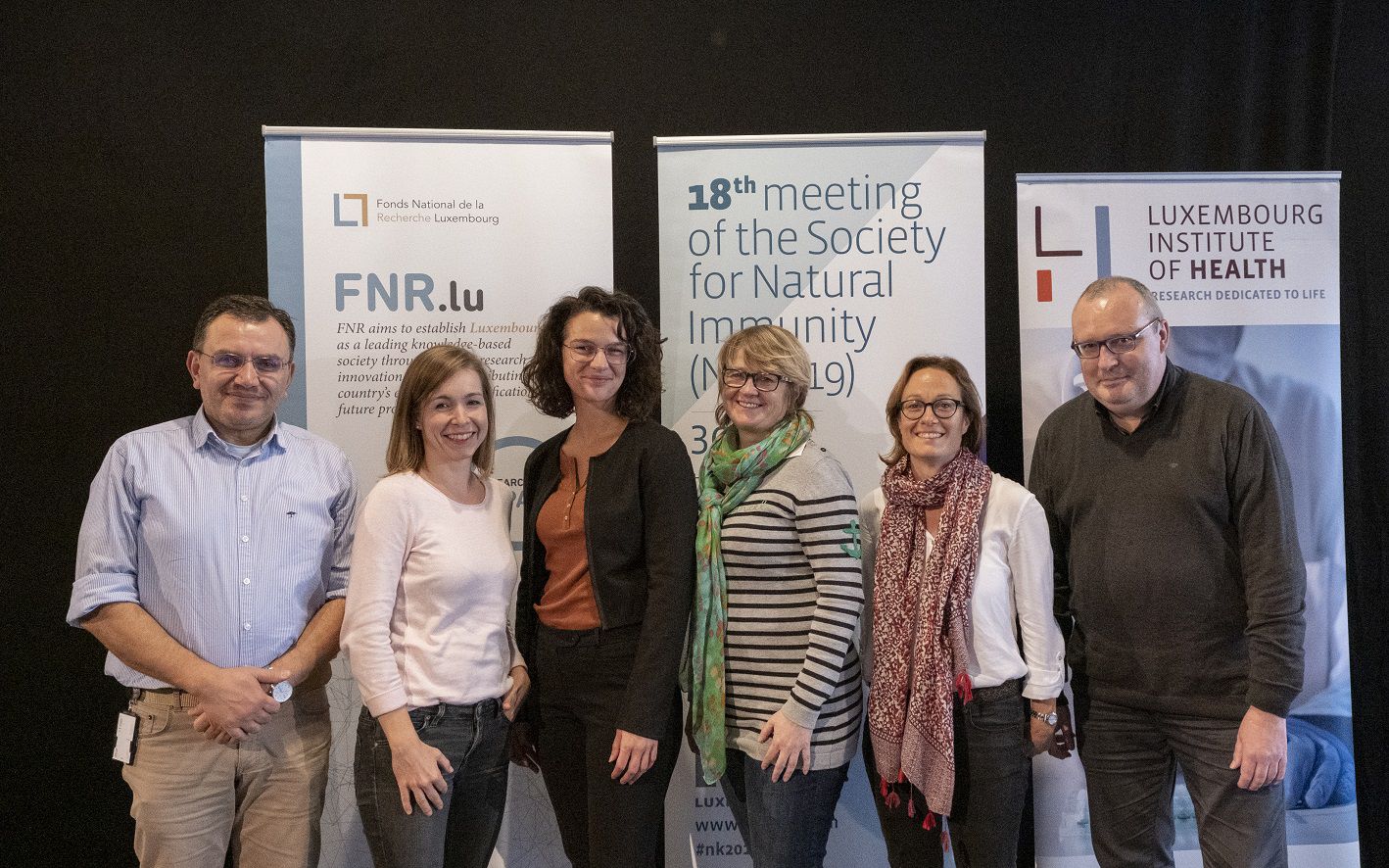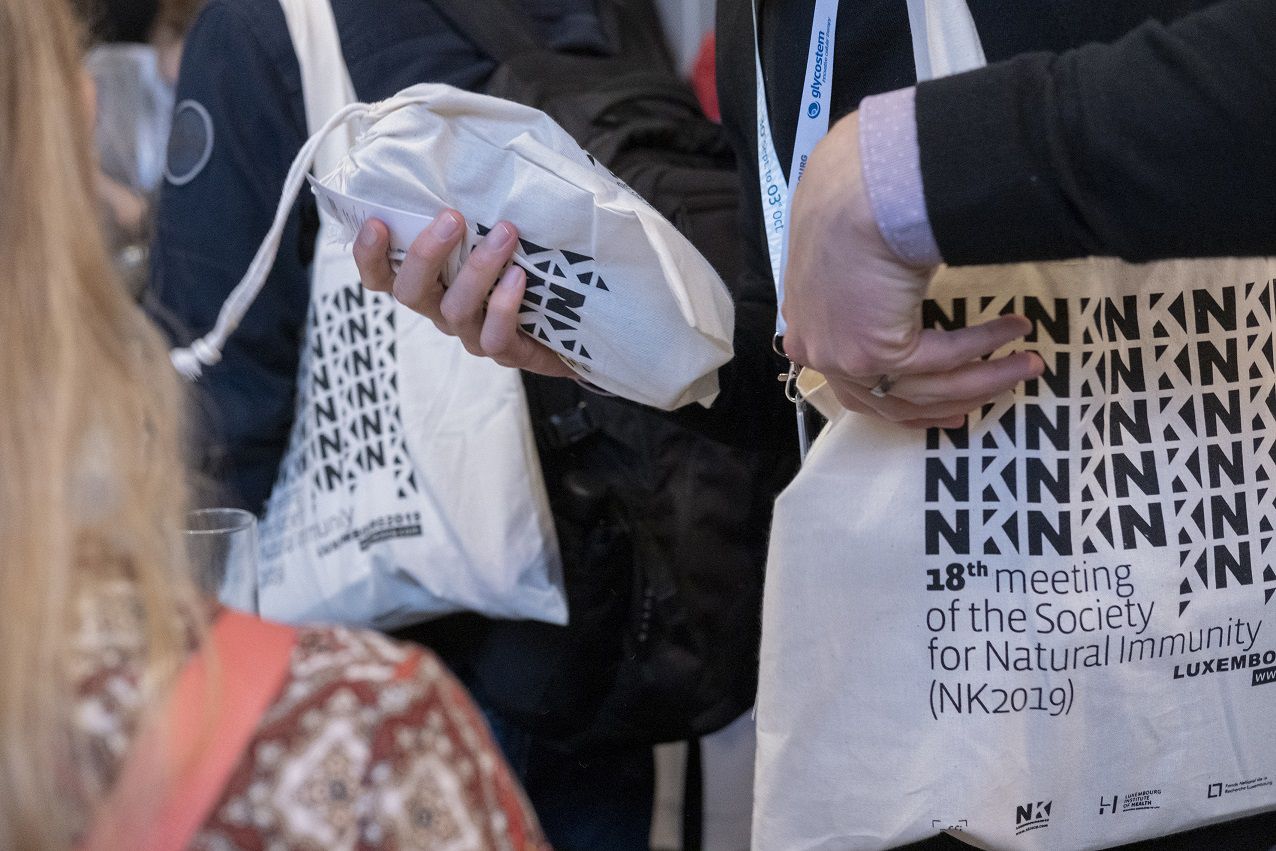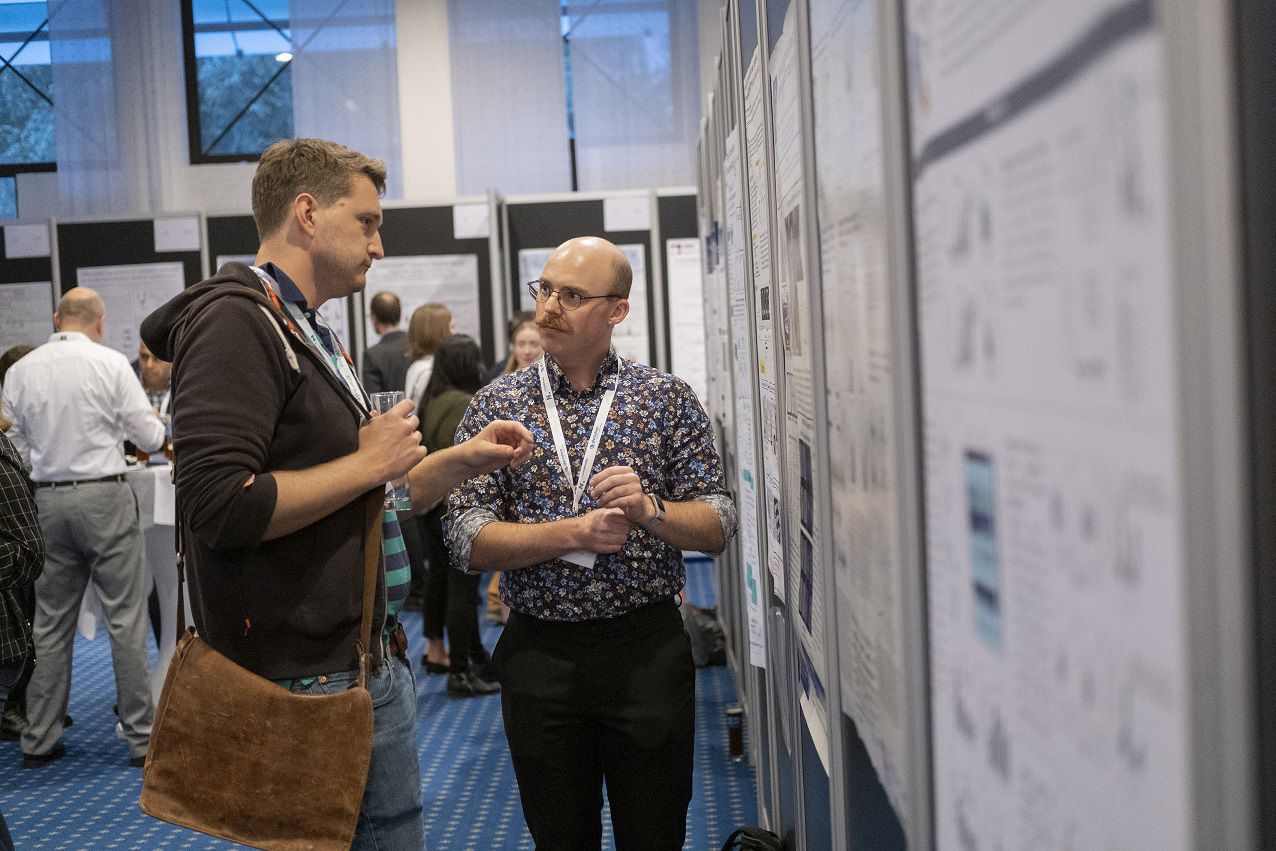16th October 2019
3 min read
The therapeutic potential of natural killer cells on everyone's lips
NK2019 Meeting
From 30th September to 3rd October 2019, close to 500 scientists from all over the world gathered at the 18th edition of the Congress of the Society for Natural Immunity NK 2019 organised in Luxembourg for the first time. An occasion to discuss the latest discoveries in immunology and new strategies for fighting diseases such as cancer and viral infections. The scientific discussions focused on Natural Killer (NK) cells, specialised immune cells that are able to attack and destroy abnormal or infected cells of the body. The discoveries presented at the congress leave no doubt: research on NK cells will pave the way for new therapeutic developments in the near future with an impact on patients’ lives.
Bringing together experts and young researchers
The four-day event held at Parc Hôtel Alvisse in Dommeldange was divided into ten thematic sessions presenting research on different types of NK cells, their multiple functions and their therapeutic potential. The congress was opened by Prof Ulf Nehrbass, Chief Executive Officer of the Luxembourg Institute of Health (LIH), Dr Sean Sapcariu, Luxembourg National Research Fund (FNR), Prof Adelheid Cerwenka, President of the Society for Natural Immunity and Dr Tatiana Michel from LIH. Next to internationally recognised experts in the field, the most talented young researchers also had the opportunity to present their work.
'We set up an extensive cutting edge program that gave established experts in the field the opportunity to directly discuss their recent discoveries with the scientific community. Similarly, the next generation of researchers was able to share their results and acquire new knowledge to advance on NK cell science.'
explains Dr Tatiana Michel, researcher at LIH’s Department of Infection and Immunity and one of the conference organisers.
Rendering NK cells more powerful
Research in the field of NK cells is progressing rapidly towards clinical applications. Dr Jacques Zimmer, also researcher at LIH and co-organiser, points out:
'Decades of intensive fundamental research are now culminating in practical successes, where scientific findings are translated into patient care. Today, we put much hope in cancer immunotherapy mediated by NK cells. Two of the congress sessions were therefore devoted solely to this theme.'
The principle of this type of immunotherapy: health professionals isolate NK cells from blood samples of patients suffering from cancer or infection. In the laboratory, scientists then modify the surface of these cells to activate them. Injected back into the patient, the NK cells display new and improved features: they are more efficient in attacking and clearing malignant or infected cells, thus helping to boost the immune attack under such conditions.
Other methods presented at the congress aiming to improve the immune response with NK cells were of particular interest to the audience. Hence, it may be possible soon, through the administration of synthetic antibodies, to direct NK cells more effectively to tumour cells or to generate NK cells that recognise tumour cells more specifically. Researchers are also considering combining NK cell-based therapies with other anti-cancer therapies that are already on the market to enhance their therapeutic effect. All these new approaches appear to be particularly promising for the treatment of so-called “liquid” or blood cancers such as leukaemia or lymphoma.
Clinical trials are already underway for some therapeutic strategies. Nevertheless, basic research on NK cells will remain essential in the future, as a good understanding of the immune system is needed to be able to modulate it and render it more powerful.
High congress attendance
Almost 500 participants from 5 continents and 30 different countries, mainly from Europe and the United States, came to Luxembourg for the NK2019 meeting. 'We are delighted that the congress attracted so many scientists with a passion for NK cells to Luxembourg - even more than previous editions,' states Dr Jacques Zimmer. 'This shows that Luxembourg is now highly visible worldwide for its research, particularly for the exploration of the immune system.'
The core activities of Luxembourg’s research on immune-mediated diseases, where biomedical researchers work on developing novel immunotherapy strategies against cancer, allergy, autoimmunity and infectious diseases, have been concentrated since 2015 in modern state-of-the-art facilities in LIH’s Department of Infection and Immunity at the House of BioHealth in Esch-sur-Alzette under the leadership of Prof Markus Ollert.
> ORGANISATION
The NK 2019 meeting was organised in partnership with the Society for Natural Immunity. The local organising committee was composed of Dr Tatiana Michel, Dr Jacques Zimmer and Dr Aurélie Poli, researchers in LIH’s Department of Infection and Immunity; Prof Markus Ollert, Director of LIH’s Department of Infection and Immunity; Juliette Pertuy, communication manager at LIH; Prof Nathalie Jacobs of the GIGA Institute in Liège (Belgium); and Dr Bassam Janji, group leader at LIH’s Department of Oncology..
> FUNDING
The event was supported by FNR's funding instrument “RESCOM - Scientific events”. It was also sponsored by grants from Affimed, Innate Pharma, Glycostem, Miltenyi Biotec, Journal of Leukocyte Biology, Bio-Techne, Cell Genix, Meso Scale Discovery (MSD), Cell Signaling, the European Federation of Immunological Societies (EFIS), Frontiers in Immunology and Vycellix™, Inc.
> Contact
Dr Jacques Zimmer
Dr Tatiana Michel
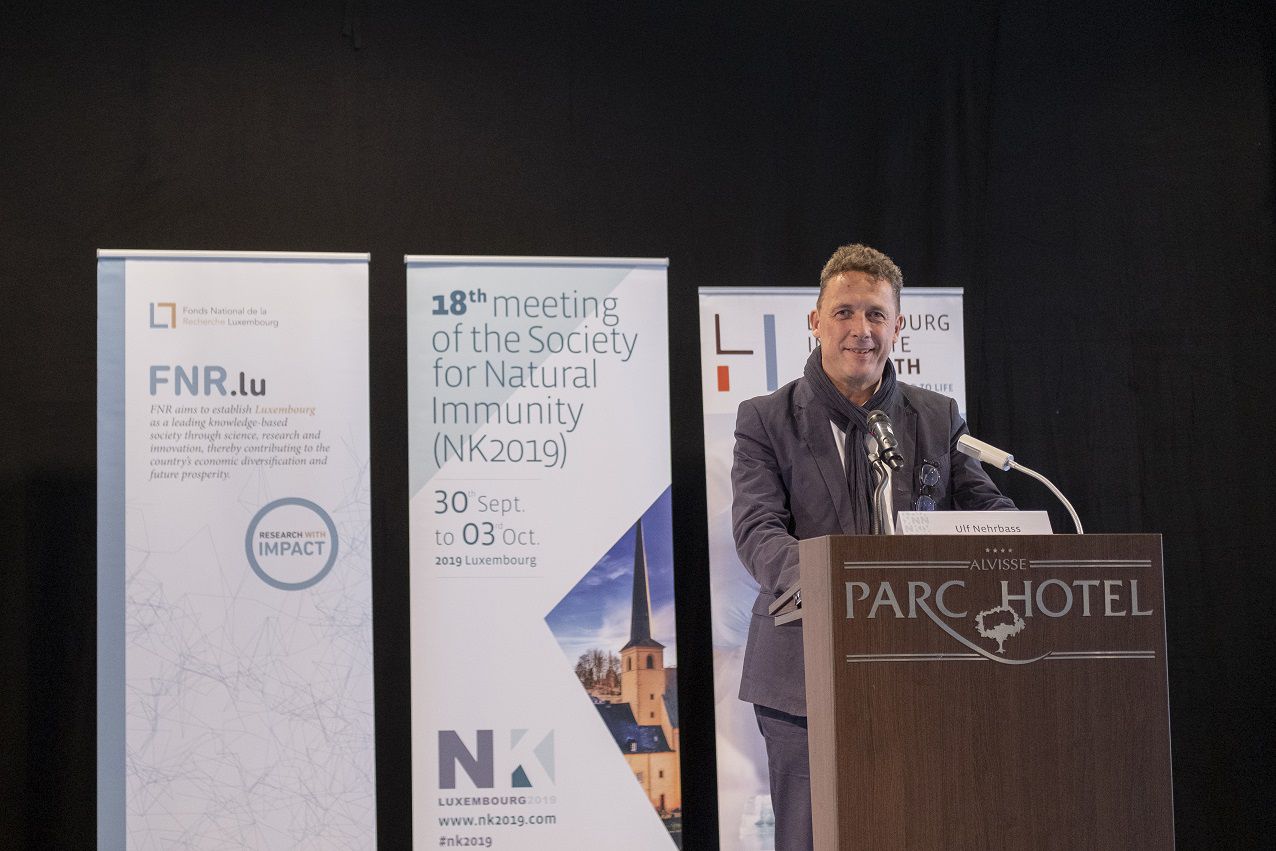
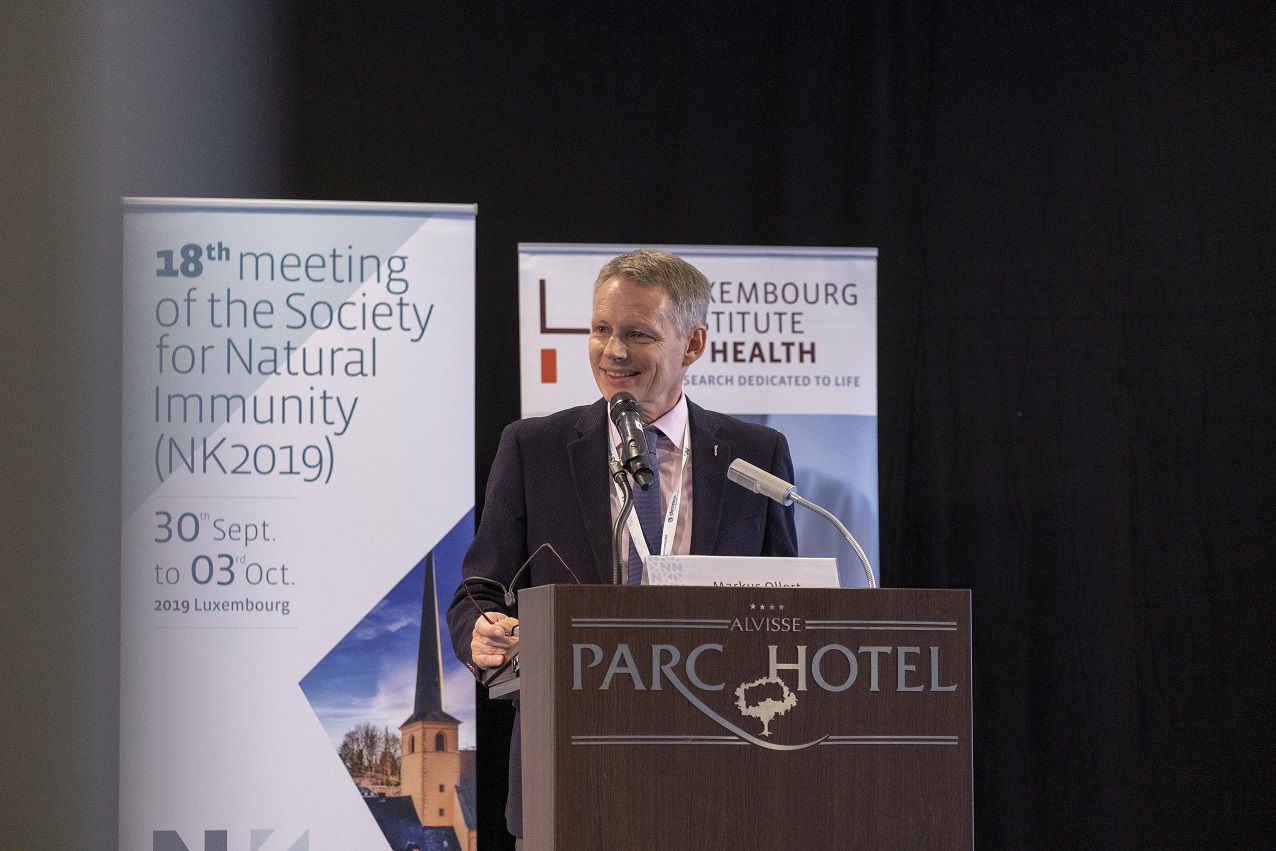
Opening by Prof Adelheid Cerwenka, President of the Society for Natural Immunity
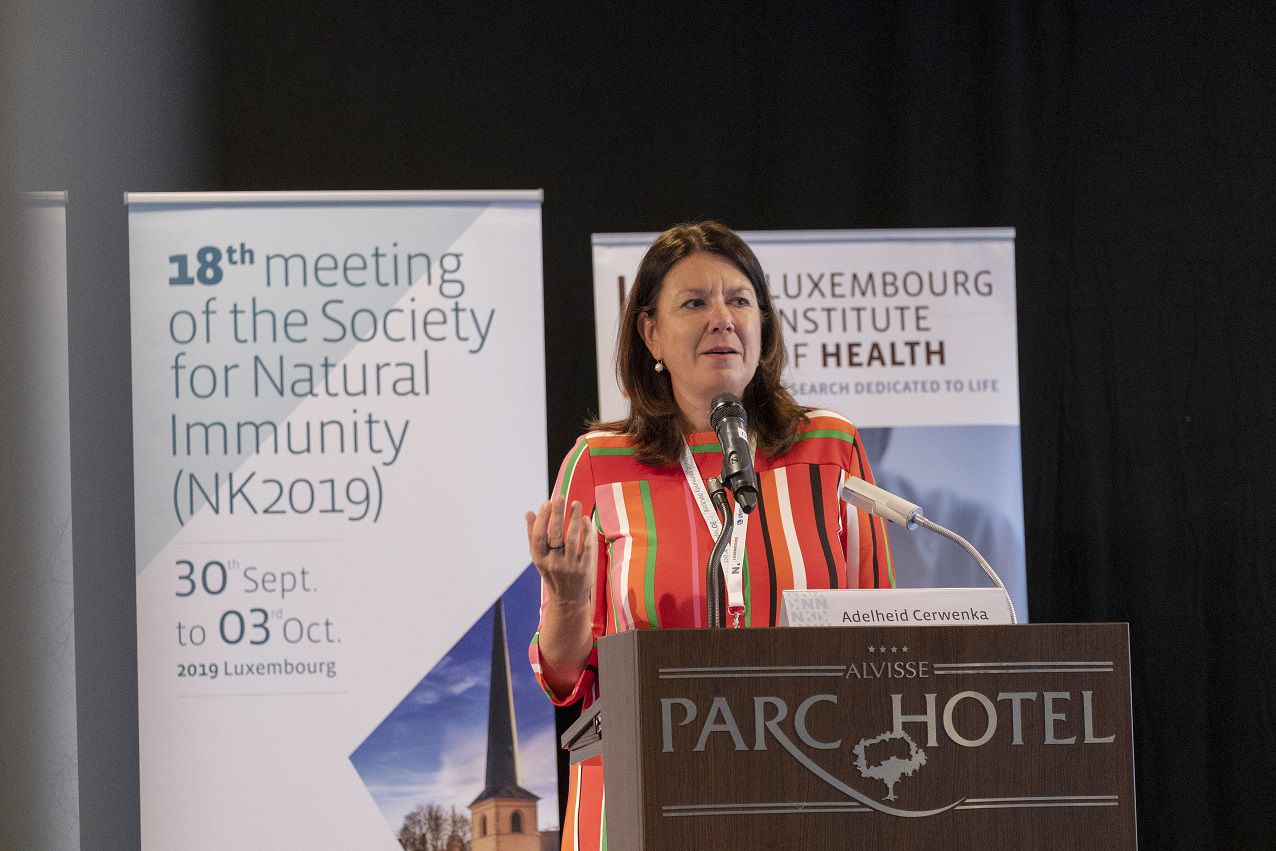
Local organising committee
